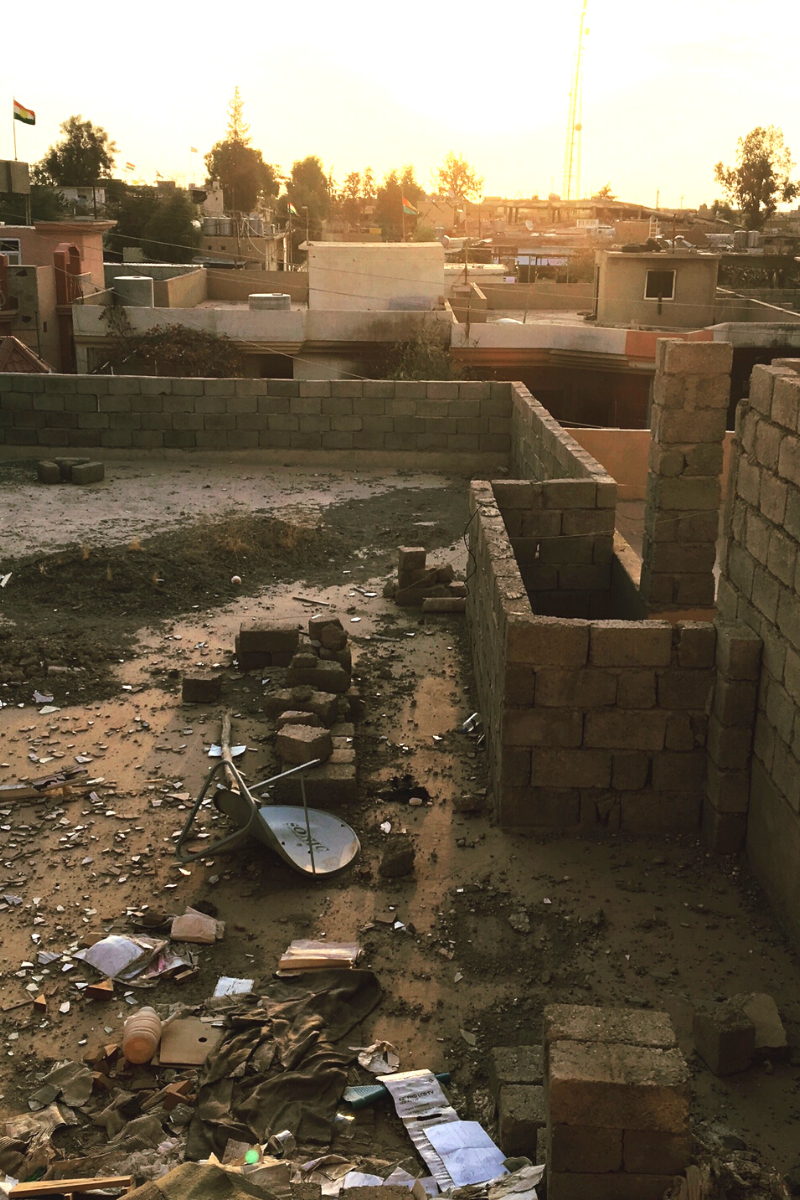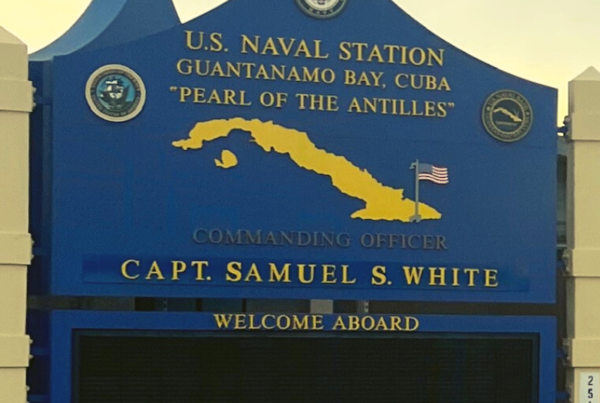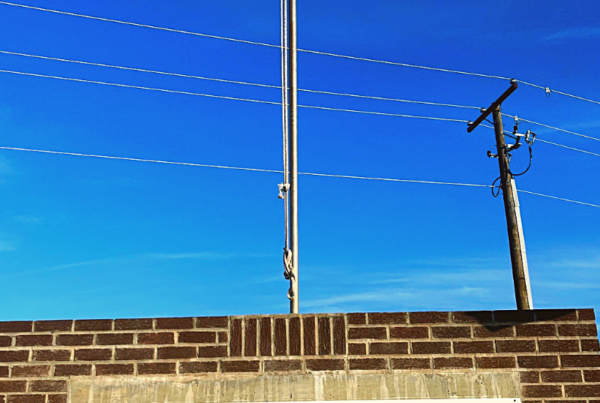BAGHDAD, Iraq – When ISIS assailed its way through swaths of war-torn Iraq eight years ago, the world witnessed the haunting plight afflicted on the Yazidi minority with thousands slaughtered in cold blood in the arid crevices of Sinjar Mountains and thousands of girls and women kidnapped into the tortuous confines of ISIS sex slavery.
But what we did not hear much about is that a similar plight afflicted the very closed and deeply conservative Turkmen minority population as well. And today, some five years after the terrorist group was declared territorially defeated in Iraq, the community is still grappling with the painful aftermath and with very little resources devoted to their healing.
“They really have been forgotten,” one high-ranking Iraqi diplomat tells me with a heavy sigh.
The mood of grief is thick.
The Turkmen leaders have begun to voice their concerns in an attempt to generate some additional help in locating their missing loved ones and bringing closure, but little is known about the number of their missing.
“When ISIS started to occupy the Nineveh Plain, they started to displace the Shia Turkmen. More than a thousand are still missing now,” says Faisal Mahmoud, who runs the “Peaceful Committee” in the city of Tel Afar, 40 miles west of Mosul, where much of the Turkmen populace resides. “Officially, there are 533 names registered as missing. But we know there are many more than that.”

Salim Mohammad Salah, another Turkmen activist and Director of the Orphanage Foundation in Tel Afar, confirmed such a number and explained that hundreds more have not registered due to the fear, shame, and uncertainty that surrounds women being captured by ISIS.
He notes that of the several thousand girls and women taken amid the burning summer of 2014, only 22 have returned to their community.
In hushed tones, activists explain that several girls and women held by ISIS were forced to undergo abortion by doctors working for the terrorist group. Some Yazidis who were rescued or returned were made to go through the procedure – even in late-term – given that children of ISIS, unlike the mothers, would not be accepted. Furthermore, Iraqi law mandates that children must assume the religion of their fathers, and Yazidis do not accept converts.
However, Turkmen leaders explain that none of their women have returned pregnant or with children, and they fear that many will not come back out of fear of the social ostracization that awaits them.
“Some have come home because they already did the abortion under the sexual abusers,” Salim explains, grief catching his throat. “But if they have kids, they will not return.”
Three years ago on a crisp late autumn afternoon in Baghdad, a Turkmen Iraqi Parliament member named Fawzi Akram first told me of the hundreds of women that were missing.
“But we aren’t talking about it,” Akram said softly, tiny, dark crescent moons forming under his eyes, his body stooped as if being burdened by the world. “If our wife or sister was raped, we cannot talk about it.”
Years later, little has changed. Being sexually abused has a stigma that is too deep.
The Turkmen are Iraq’s third largest ethnic group, after Arabs and Kurds. About 60 percent identify as Sunni Muslims, while the rest are Shiites. Those in the latter group were brutally attacked by ISIS. The Turkmen have long suffered persecution, whether by militias following the 2003 war or previously under Saddam Hussein’s pan-Arab project. Their numbers, around 600,000 before the war began, have since dropped sharply.
In addition to holding many as spoils of war in a similar vein to the Yazidis, hundreds – boys, girls, men, and women – were subject to the most unimaginable horrors under the ISIS reign. Of all the military tactics, laying siege to the Shia Turkmen was among the cruelest.
“They killed most of them, and they burned the women alive,” Faisal continues in raw, unbridled terms. “Some were forced to get married, and they are still missing. We don’t know exactly how many are still missing.”
The Turkmen community suffered in silence for too long and now feels abandoned in a country still battling to form a cohesive government more than eight months after federal elections took place.
Nawfal Rasheed, Iraq’s former Minister of Immigration, explains over tea that he tried to help the hurting community during his time in office a couple of years ago.
“There a many bad stories about what happened to them,” he says with a shudder. “But the community is very closed, and the government was focused elsewhere.”
Nonetheless, in March of last year, the Iraqi parliament passed the “Yazidi Survivors Law,” historic legislation designed to provide long-awaited relief such as salaries and housing for Yazidi women and other survivors belonging to minority communities (including Turkmen) targeted by the self-declared Islamic Caliphate. However, the activists I speak to complain that it’s nothing more than a piece of paper, nothing has been implemented, and nothing has changed.
As time passes, trust wanes further. There is still no application process, and the legislation still requires funding to get off the ground. Sarab Barkat, General Director for Survivor Affairs, which is linked to Iraq’s Ministry for Social Affairs, remains determined to bring the unprecedented bill into action.
“The survivors have gone through heavy suffering, and they deserve support. But we need more help from the international community and NGOs to implement this law because they are suffering a lot,” she says.
Sarab explains that they do not have specific data on all the missing persons because the community is very conservative and does not want to talk about what happened. However, she is hopeful that when they eventually get an electronic database up and running, more will come forward.
Sadly, much of the community knows that hundreds likely lie buried below the sunbaked earth in one of the many mass graves that dot the Tel Afar area. The notion that there is no dignity for the dead and little effort to excavate the gravesites has, in many ways, destroyed the minority group’s soul. Time has lost its meaning.
“We have counted 86 graves in Tel Afar and Mosul,” Sarab laments. “We want these to be opened.”
Faisal points out matter-of-factly that he has counted the skeletons of 48 of the dead in one shallow grave in the ground and that they need assistance with DNA testing so death certificates can be issued and anguished loved ones can have some closure.
“We are demanding the international society and the government to work on this. The families that are missing their members are still waiting for their rights. The doctor he asked me, ‘where’s the body? I cannot write the death certification without the body,’” he continues. “By law, this should have been completed within three years. It has now been five years, and families are waiting.”
I ask what the feedback has been from the Iraqi government.
“No response,” Faisal surmises. “No response.”
However, the Turkmens are slowly starting to rattle the cage in an attempt to call for help – it is the first step to moving on from the painful past that has halted their lives.
“For a long time, very few survivors would talk because of their concern from the society and their community. Now they have started talking,” Sarab adds. “They saw how much it helped the Yazidis, and they have started to register themselves for psychological support.”
And now Baghdad – and the world – needs to answer that cry for help.






